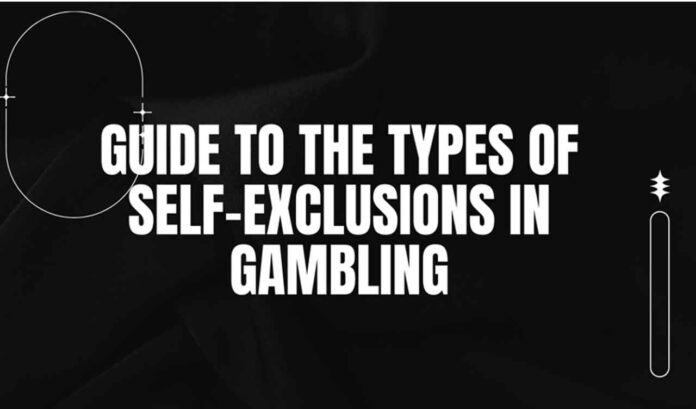Responsible gambling has become the leading industry pillar in recent years. Operators, regulatory authorities, and governments pay a lot of attention to this issue globally since the increased accessibility of digital casinos creates particular problems. A high number of users suffer from gaming-related disorders, and self-exclusions are among the most efficient tools to fight them. Even though these programs are controversial and many players prefer to avoid them, they eventually bring benefits to the population’s well-being. How does self-exclusion work and what are its main types available in 2024?
Distance Yourself from Gambling: Self-Exclusions and Blockers
Gambling self-exclusion is a tool that restricts access to casinos and betting sites for a chosen period, giving users time to recover and reconsider their behaviours in this risky entertainment. GamStop is now the most common tool that covers all UKGC-licensed platforms and automatically blocks problem players. The program cannot be disputed, cancelled, or suspended, so users must finish their self-exclusion term to start gambling or betting again.
This tool only operates in British jurisdiction and has strict limitations, so many adrenaline hunters like UK sportsbooks with no GamStop on Non-GamStop-Betting and online casinos. These sites offer more flexibility and freedom in games, betting opportunities, bonuses, deposit limitations, and so on. On the other hand, all responsible operators, regardless of their jurisdiction, comply with globally accepted consumer protection standards and provide customers with all the necessary measures to maintain healthy gambling habits. Members of platforms outside GamStop can take advantage of alternative gambling blockers and self-exclusion software and join them voluntarily to get rid of their compulsive problems.
Types of Self-Exclusion Available to Risk Seekers
Overall, these tools work similarly: users can get restricted access to potentially harmful content and take time to develop a healthy approach towards online casinos and bookmaker sites. Betting enthusiasts can enjoy flexible conditions since they select the self-exclusion period themselves. However, there are still some differences in the available programs, so let’s explore them.
Mandatory Nationwide Programs
Currently, GamStop is the only nationwide self-exclusion that covers all platforms registered in the UK. Other countries consider a similar approach but don’t boast of such a well-developed responsible gambling approach. GamStop is integrated into all online casinos and sportsbooks, so users cannot avoid it. The tool analyses user activities on the website and identifies problem players automatically. After that, users are alerted about excessive activities and are recommended to take a break. GamStop blocks players if it notices the first signs of compulsive gambling and allows participants to select the restriction time themselves. The minimum time to be banned is six months, while the maximum reaches five years. Self-excluded customers cannot suspend the ban, but there’s the possibility of extending it if the chosen period is not long enough to recover.
Many users are dissatisfied with this approach since they want to make their own decisions about continuing gambling on the NonGamStop.NonStopCasino sites, and are anxious about being banned against their will. However, GamStop is a working tool for coping with gaming disorders: over 80% of its participants reported improved conditions and mentioned the program’s efficiency. On the other hand, many compulsive players use platforms outside the UK to get around the ban, which makes GamStop not as well-organised as it was initially planned.
Voluntary Self-Exclusion Tools
Luckily, joining GamStop is not the only way to be banned from gambling sites and pass treatment during the self-exclusion period. Multiple similar tools are available in different jurisdictions. The main priority of other programs is that punters can only participate voluntarily. For instance, the US government launched NVSEP in the summer of 2024: this system only covers a limited number of states, but it is projected to expand its impact on the entire country. Other states’ regulatory authorities also develop self-exclusion opportunities for those suffering from gambling problems. Users can visit the chosen platform and apply for participation, after which they can customise their preferences and enjoy betting-free lives.
Internationally Accepted Gaming Blockers
Even though this software isn’t solely designed for problem bettors, they are still efficient in coping with gambling problems. Tools like BetBlocker, Gamban, NetNanny, etc., are accessible in numerous countries, so everyone can install them with a few clicks. Even though most of these programs were initially developed as parental control software, they cover a broad range of platforms and are real assistants in coping with compulsive habits. The main benefit is that customers can launch them across all the devices and select the blocking term, which makes this solution convenient and efficient.
The Final Word
Coping with problem gambling behaviours is on the agenda due to the rapid evolution of the digital betting sector and enhanced user engagement in the industry. Unfortunately, addiction rates are growing in numerous countries, so their regulatory authorities are forced to use specific consumer protection measures. Even though many punters and players are not inspired by the possibility of being blocked from their favourite platforms, all self-exclusions are the working tool for coping with related disorders.








